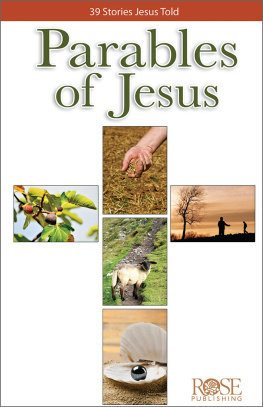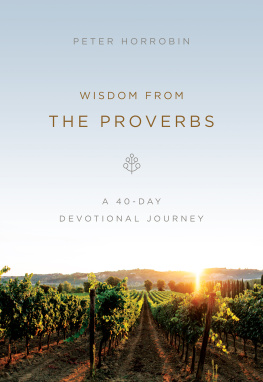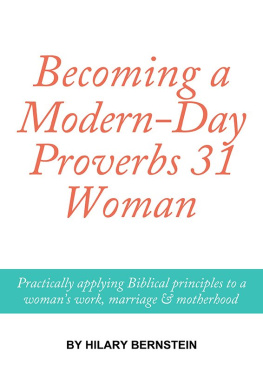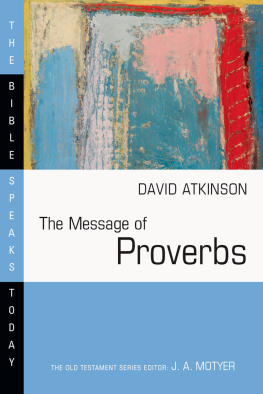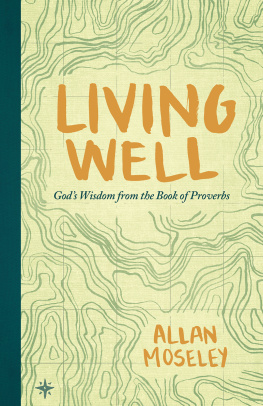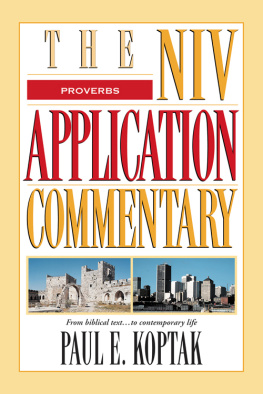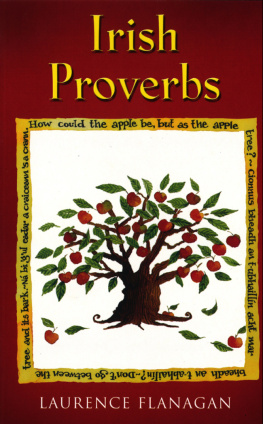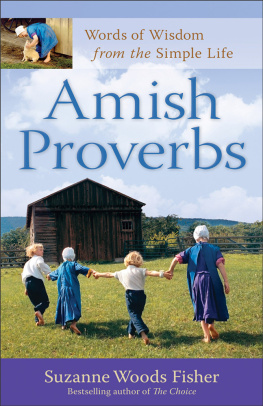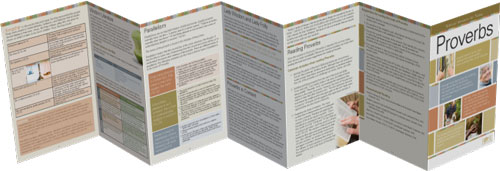The printed version of this eBook is the Proverbs pamphlet, ISBN-13: 9781596363960
Author: Benjamin Galan, MTS, ThM, Adjunct Professor of OT Hebrew and Literature at Fuller Seminary
Scripture taken from THE HOLY BIBLE: NEW INTERNATIONAL VERSION.NIV. 1973, 1978, 1984 by International Bible Society. Used by permission of Zondervan Publishing House. All rights reserved.
It is illegal to photocopy, transmit electronically, post on the internet, or reproduce this pamphlet in whole or in part in any form.
2010 Bristol Works, Inc.
Rose Publishing, LLC
PO Box 3473
Peabody, Massachusetts 01961-3473 U.S.A.
Email: info@hendricksonrose.com
www.hendricksonrose.com
All rights reserved.
Proverbs
This handy eBook:
- Gives a fantastic overview of the entire book of Proverbs and includes discussion questions for personal or group use in less than 30 minutes.
- Explains how to avoid 3 common mistakes people make when reading Proverbs. Plus, it explains how Bible proverbs are different from other proverbs from ancient times.
- Covers key verses and themes of the proverbs, such as wisdom, relationships, money, speech, character, honor, and kingship.
Proverbs: A Guide to Godly Living
An apple a day keeps the doctor away... We all have heard or used some of these pithy sayings at one point or another. They express popular wisdom about the world that anyone can understand and apply. Their content expresses an observation about nature or society or advice concerning behavior or making choices.
People understand that following the advice of these wise sayings will help one to live a better life. Part of their effectiveness lies in their brevitythey are easy to remember. These sayings are most effective when we quote them at the right moment and in the right circumstances.
Proverbs are short, memorable sayings that generalize on human experience to communicate an experiential truth.
Although we all recognize that these bits of wisdom are helpful, they are not universal or always applicable. While generally an apple a day keeps the doctor away, we all know that some serious illnesses require immediate medical attention. In other words, we all recognize the limits of popular wisdom.
In the following pages, we will learn about biblical proverbs from the book of Proverbs: their background, hints and steps for interpretations, main themes, and connections with the New Testament and the church today.
wisdom
Wisdom is often defined as the ability to make godly choices. In the Bible, wisdom is tightly connected to creation. The way God created the universe has a direct effect on the way nature and society behave. In an important sense, wisdom is the ability to see life and the world the way God sees them. Wisdom is practical knowledge that allows people to live fully.
proverb
Proverb is a short, memorable saying that communicates an observation of the world or experience that helps one live better. The Hebrew word behind it is mashal . Among its meanings are: to rule and to compare or liken. The wisdom of proverbs helps wise people to master the art of godly living, as well as to discern how our lives and our behavior are connected with Gods creation.
Who Wrote the Book?
- Proverbs 1:1, 10:1, and 25:1 affirm that King Solomon, King Davids son, was the main author.
- Proverbs 25:1 also affirms that the men of Hezekiah king of Judah copied them.
- The book also recognizes other contributors: Wise men (22:17; 24:23), Agur (30:1), and Lemuel (31:1). Nothing is known about these writers.
- We read in 1 Kings 4:32 that Solomon wrote three thousand proverbs.
How Is the Book Arranged?
The structure of the book gives us an overview of the content and themes. The main sections of the book of Proverbs are:
- Introduction to the book (1:17)
- Instructions and warnings (1:89:18)
- First collection of Solomons proverbs (10:122:16)
- First collection of the words of the wise (22:1724:22)
- Second collection of the words of the wise (24:2334)
- Second collection of Solomons proverbs (25:129:27)
- The words of Agur (30)
- The words of Lemuel (31:19)
- Poem of the virtuous woman (31:1031)
fear of the Lord
The Bible is clear that the fear of the Lord is the beginning of knowledge (1:7). In the Bible, the starting point of wisdom and its end-goal are an all-embracing relationship with God, the L ORD of the covenant. The fear of the L ORD is not a sense of terror but of reverence. In other words, it is a deep sense of who God is and who we are in relation to him. It is a deep understanding that God is the creator, sustainer, savior, judge, and owner of the whole universe. This knowledge is a relational knowledge that affects our behavior. The psalmist explains, The Lord delights in those who fear him, who put their hope in his unfailing love (Ps. 147:11). Fearing the L ORD , then, takes the form of trust: trust in Gods faithfulness to his promises as creator, redeemer, savior, and judge.
Main Themes in the Book of Proverbs
Wisdom We can read the whole book as an appeal to choose wisdom over all other things.
God created wisdom (8:2223) | The L ORD brought me forth as the first of his works, before his deeds of old; I was appointed from eternity, from the beginning, before the world began. |
God used wisdom to create the universe (8:2431) | Then I was the craftsman at his side. I was filled with delight day after day, rejoicing always in his presence. |
God reveals and is the source of wisdom (2:67; 30:56) | For the L ORD gives wisdom, and from his mouth come knowledge and understanding (2:67). |
The beginning of wisdom is fear of the L ORD (1:7; 2:5; 9:10; 10:27; 14:27; 15:16, 33; 16:6; 19:23; 22:4; 23:17) | The fear of the L ORD is the beginning of knowledge, but fools despise wisdom and discipline (1:7). |
Wisdom is desirable over all things (4:79; 8:1011) | Choose my instruction instead of silver, knowledge rather than choice gold, for wisdom is more precious than rubies, and nothing you desire can compare with her (8:1011). |
Understanding Humanity Wisdom teaching is directed to all people. Proverbs is an invitation to accurately identify the source of all wisdom, neither over- nor underestimating human wisdom. In the book of Proverbs we learn about humans:
Humans are Gods creation (29:13) | The poor man and the oppressor have this in common: The Lord gives sight to the eyes of both. |
Next page


